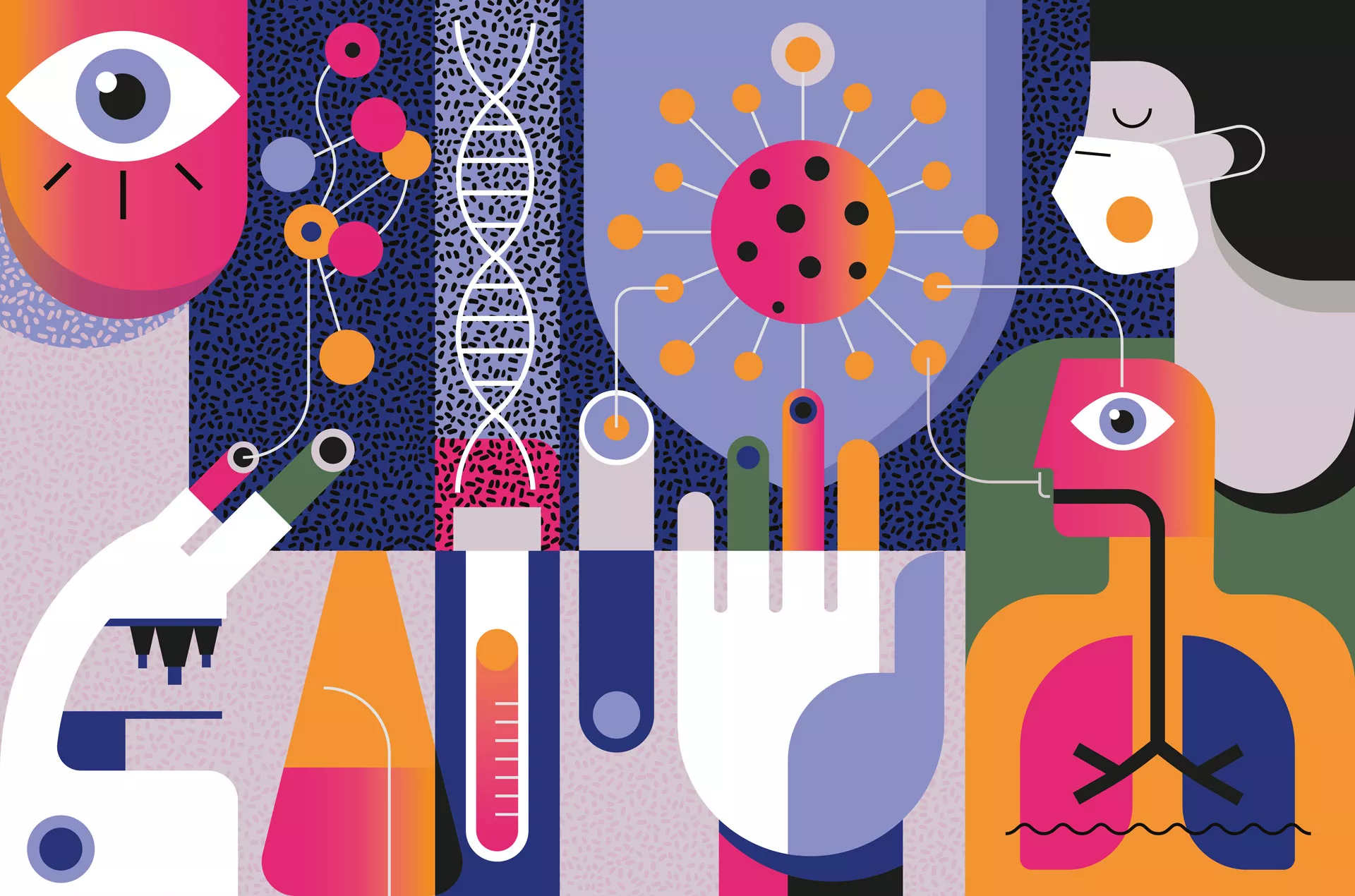
Messenger RNA, the key to personalised medicine
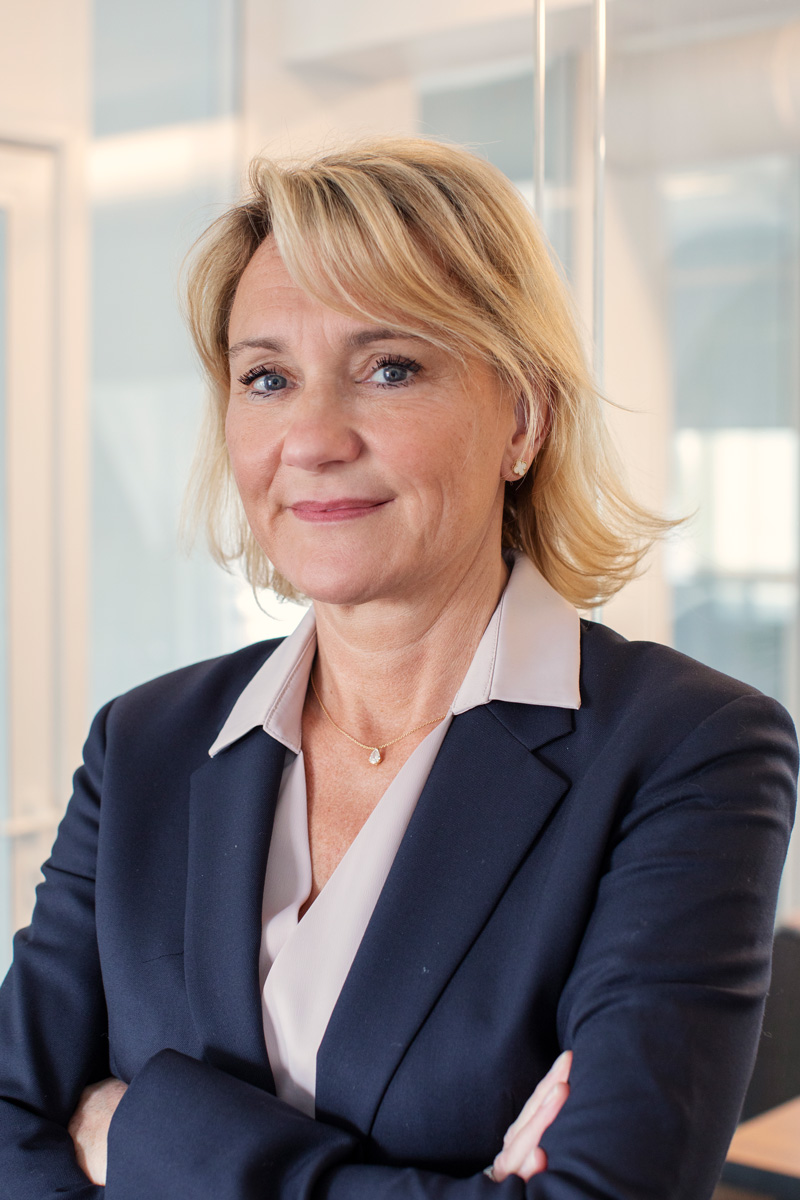
Sandra Fournier
is CEO of Moderna France, the subsidiary of the American biotechnology company that designs vaccines and therapies based on mRNA technology.
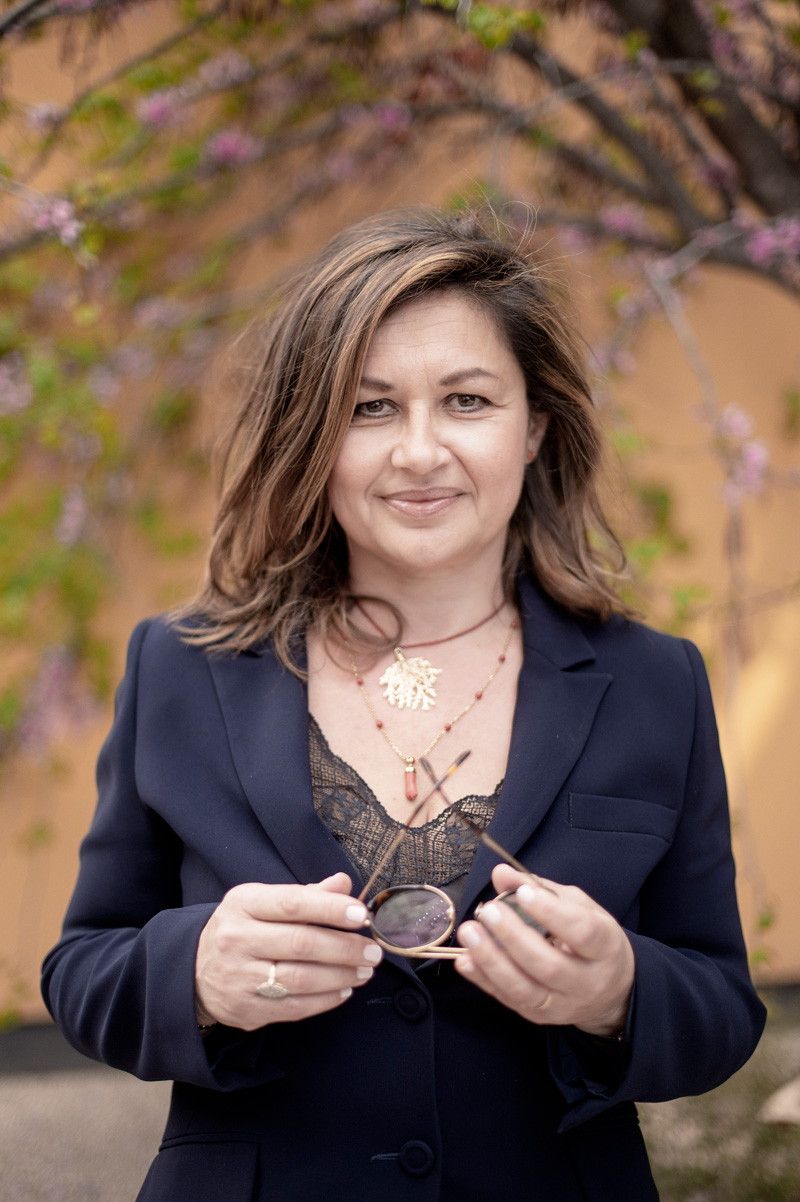
Palma Rocchi
is research director at Inserm and leads the “Prostate cancer, mRNA, Nanomedicine and Theranostics” team at the Cancer Research Center of Marseille (CRCM).
How long have scientists been studying messenger RNA (mRNA)? What were the major stages of the research?
Palma Rocchi: Since the discovery of mRNA in 1961 by Jacques Monod, François Jacob and André Lwoff at the Pasteur Institute, which earned them the Nobel Prize in 1965, a whole field of medical applications has opened up around two approaches: vaccination and the targeting of mRNA for therapeutic purposes. The story of mRNA vaccines begins thirty years ago with research from the likes of Jon A. Wolff in 1990 at the University of Wisconsin or Frédéric Martinon and Pierre Meulien in 1993 at the Pasteur Institute. At the time, vaccine development strategy had come up against certain limiting factors: the stability of the mRNA, its delivery, its immunogenic effects and its production in large quantities. It was the development of innovative solutions over the past fifteen years, and in particular the work of Katalin Karikó and Drew Weissman, at the University of Pennsylvania, which paved the way for mRNA vaccines against COVID-19. Extensive research conducted over three decades in oncology, concerning prototype mRNA vaccines specifically targeting cancer cells has also been very important. It was this know-how and the insights gathered that have contributed to the speed of production of vaccines against COVID-19.
When did the story start for Moderna?
Sandra Fournier: As early as 2011, Stéphane Bancel, the CEO of the company (created in 2010 in Cambridge in the United States), bet big on mRNA technology. For ten years, the start-up invested 2.5 billion dollars in research, thanks to fundraising. During this period, Moderna did not launch any commercial products or generate income, so it was a genuinely risky undertaking. But the expertise acquired by its 800 researchers put it in a position to offer a vaccine in record time when the COVID-19 pandemic struck in early 2020. Once the SARS-CoV-2 virus sequencing was available, it took only 48 hours to determine and synthesise the mRNA strand, 42 days to produce the first batch of vaccine candidates for clinical trials and nine months to prepare for clinical trials before obtaining marketing authorisation, issued by the European Medicines Agency on January 6, 2021. It was certainly a scientific feat but also an industrial one because the company had to raise another billion dollars to build its first production plant and then produce and deliver 807 million doses of vaccines worldwide in 2021.
Does the simplicity of production and the speed that you have just illustrated with the example of the vaccine against COVID-19 explain the success of mRNA?
S.F.: Stéphane Bancel compares our platform, responsible for mRNA production, to a smartphone. With more than 4,000 employees today, the company has grown the number of candidate vaccines and therapeutic solutions from 20 to 48 in only three years. These candidate vaccines and treatments are like smartphone applications — they can be updated very quickly. This technology allows for great agility. In the case of COVID-19, we can constantly adapt to the emergence of new variants of SARS-CoV-2. This involves modifying the sequence of the mRNA coding for the vaccine antigen, and then producing the appropriate vaccines on an industrial scale all over the world. We have just signed four framework agreements to set up production plants in Canada, the United Kingdom, Australia and Kenya.
P.R.: COVID-19 has raised awareness of the potential of mRNA technology to very quickly produce a vaccine or a drug candidate with very high specificity, compared to about ten years with a conventional molecular approach. The example of Milasen, a drug created in 2019 at Boston Hospital by Dr. Yu’s team for Mila, a young girl suffering from a neurodegenerative disease, illustrates this perfectly. The sequencing of her genome allowed us to identify the mutation at the origin of her disease and to produce a molecule (an antisense oligonucleotide) specifically targeting this mutation. This molecule attained market authorisation in less than a year! This very particular example of a medicine tailor-made for a single person is unique at the present time, but it perfectly illustrates the possibilities offered by mRNA therapies.
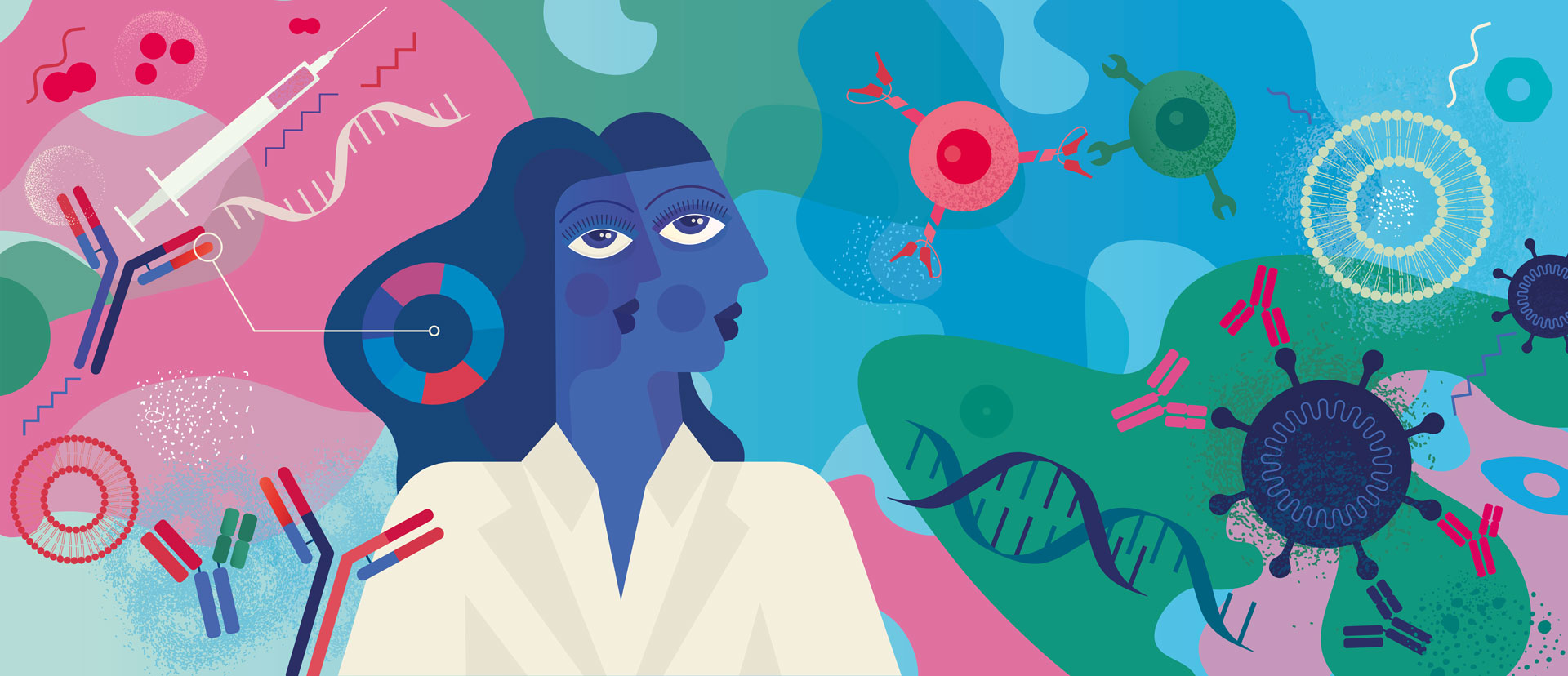
You are working on the development of antisense oligonucleotides (OAS) in oncology, a field where research on the use of mRNA is booming. What are the advantages of this approach?
P.R.: As I mentioned, mRNA technology has been studied for a long time by cancer researchers, with the aim of developing not only vaccines but also drugs. Around the world, since the early 2000s, several teams like ours have been working on the development of therapeutic molecules, OAS, which will target mRNAs coding for proteins involved in tumour growth. This research opens the way to real personalised medicine: by specifically targeting genetic mutations, it makes individualised treatment possible. In the laboratory, our team is exploring this strategy against hormone-resistant prostate cancer. We demonstrated the influence of the Hsp27 protein, over-expressed in tumour cells, in resistance to treatments and developed an OAS that targets the corresponding mRNA. The first clinical results are encouraging! Our ambition is to produce OAS cocktails. These nano-medicines would be veritable Swiss Army knives for inhibiting the expression of several mRNAs and thus “bypass” the cancer, in combination with more conventional treatments, such as chemotherapy, hormone therapy, radiotherapy or immunotherapy.
Does the mRNA vaccine show any promise for anti-tumour treatment?
S.F.: Moderna is working in this direction, with the development of therapeutic anti-cancer vaccines, which do not aim to prevent the disease, like those intended for prophylaxis, but to cure it. This is the case for the mRNA vaccine candidate for the treatment of melanomas with a high risk of recurrence, which we are currently developing with the pharmaceutical group Merck. Phase IIb clinical trial results announced at the end of 2022 are very encouraging. By combining this personalised vaccine with KEYTRUDA®, an immunotherapy treatment produced by Merck, the risk of recurrence or death is reduced by 44% compared to conventional treatment alone. The principle of this vaccine is to activate the immune system: the mRNA will modify the behaviour of certain immune cells to force them to reject the tumour. It is a personalised vaccine, designed according to the characteristics of the tumour of each patient, which is studied from a biopsy. Phase III of these trials should be launched this year. If we succeed in developing this vaccine, there literally will be as many treatments as there are patients. And we want to extend this approach to other types of tumours.
RNA, how does it work?
RNA (for ribonucleic acid) is a carrier molecule for genetic information. It is produced in the nucleus of cells from DNA (deoxyribonucleic acid) which stores genetic information, during a copying process, called transcription. This process results in the production of RNA molecules carrying the same genetic information as the transcribed section of DNA.
There are several types of RNA and the main ones used in medicine are:
- Messenger RNAs, produced from portions of DNA, they correspond to gene coding for specific proteins. An mRNA is like a photocopy of the parts of the genome where the instructions for producing a given protein are written. The mRNAs therefore serve as a model for the cell during the manufacture of proteins. Once read, this “photocopy” is destroyed. The lifetime of an mRNA is short, ranging from a few minutes to a few days.
- Interfering RNAs specifically bind to mRNAs and prevent their translation into protein. Their activity is one of many mechanisms for regulating the expression of genes which are part of the very precise regulation of cell functioning.
- Antisense oligonucleotides are fragments of RNA (or DNA) synthesised in the laboratory. They specifically associate with mRNA sequences to modify their reading.
Regarding vaccines against COVID-19, it is an mRNA made in the laboratory and coding for the Spike protein which is injected. This protein allows the SARS-CoV2 virus to enter our cells. After the injection, the cells manufacture the Spike protein and “present” it on their surface. The immune system identifies it in the same manner as when it is present on the surface of the virus, activating defence mechanisms and the so-called memory immune response. The body will thus be primed and ready to defend itself if exposed to the actual virus. In parallel, the cells which have received the mRNA and expressed the spike protein are rapidly destroyed, as well as the vaccine mRNA. This mechanism is therefore very transitory and short-lived.
(Sources: Inserm, The League Against Cancer)
Beyond cancer, for what other diseases could mRNA technology prove effective?
P.R.: In the future, treatments using mRNA could allow the personalised management of a large number of diseases. Research is multiplying across fields as diverse as infectious diseases, cardiology, pulmonology, ophthalmology, autoimmune diseases, genetics... many diseases are potentially concerned. We are in the process of creating a start-up, SILON THERAPEUTICS, to continue the development of our nano-medicines for prostate cancer but also for other cancers and pathologies, such as rare cardiovascular, neurological and genetic diseases. mRNA especially brings hope for the latter, which are associated with a single genetic defect. The goal is usually to restore the activity of a deficient protein.
S.F.: There are 7,000 rare diseases in the world, 80% of which are genetic in origin. Having an mRNA molecule that can provide your body with the necessary information to produce the missing or deficient protein can significantly alter the situation for these diseases. These conditions primarily affect children who currently lack any real treatment. For example, we are developing research for two hereditary metabolic diseases, propionic and methylmalonic acidemia. We also have mRNA vaccine candidates against influenza and respiratory viruses. This is the case, for example, for RSV infection (respiratory syncytial virus) responsible for bronchiolitis in infants and serious respiratory illnesses in the elderly. We hope to be able to produce a vaccine rapidly to fight against these three main winter-time respiratory diseases. I could also cite candidate vaccines against latent viruses such as EBV (Epstein-Barr virus) involved in infectious mononucleosis and many other diseases and also those against HIV… We are at the dawn of a revolution of medicine because the field of possibilities is immense.
What needs to be done to speed up innovation even further?
P.R.: The context is very favourable for mRNA research in general since this technology proved itself so spectacularly in the fight against COVID-19. The interest now shown by major pharmaceutical groups very much reflects the hope that these therapies may well be at the forefront of medicine tomorrow. The role of public funding remains, of course, crucial to supporting research in this field, as COVARS reminds us, in the specific case of France. It is also necessary to encourage bridge-building between the public and the private sectors, enabling risk-taking and investment at very early stages in the development of start-ups that are embarking on innovative research.
S.F.: France is a centre of excellence in terms of scientific research and it needs to strengthen its attractiveness in health innovation, in rapidly expanding sectors such as mRNA therapies. Moderna is at a turning point in its industrial development with 17 subsidiaries opened across the world. In France, we want to develop production capacity, research partnerships and carry out a larger number of clinical trials. On this last point, France needs to improve its procedures to recruit patients more quickly into these trials. This is crucial for further expediting innovation.
Look further

BOOKS
101 secrets of DNA
dir. Denis Faure, Dominique Joly and Sylvie Salamitou, CNRS Editions, 2019.
The messenger RNA revolution, Vaccines and new therapies
Fabrice Delaye, Odile Jacob Editions, 2021.

WEBSITE
RNA therapies: a rapidly expanding therapeutic area
www.inserm.fr/dossier/therapies-a-arn

VIDEO AND FILM
The Pioneers of mRNA,
podcast, The Economist, 19 July 2021
mRNA, a medical revolution,
documentary arte, October 2021
Today is already tomorrow

RNAi used as drugs
Much less known than mRNAs, interfering RNAs (RNAi), discovered in 1998, earned American researchers Andrew Fire and Craig Mello the Nobel Prize for Medicine in 2006. These microRNAs, which play a role in the regulation of protein production, have major therapeutic potential. They are already used in therapy. A few RNAi-based drugs are already available on the French market to slow down the progression of rare and severe diseases. And dozens of other drugs are in development.

Multiple sclerosis: the mRNA trail
What if mRNA could become a therapeutic strategy in the treatment of autoimmune conditions such as multiple sclerosis? The publication of an article in the prestigious journal Science, co-signed by the two founders of BioNTech, in January 2021, raises real hopes. The work of the German biotech researchers is based on the development of a specific treatment using an mRNA that encodes antigens linked to multiple sclerosis. This type of research protocol takes years however and will require significant work before leading to the development of a treatment.
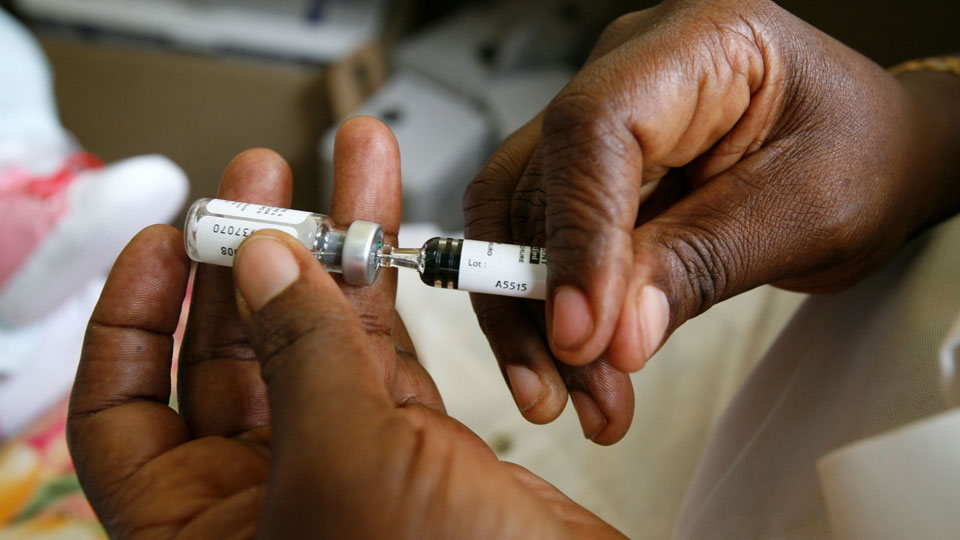
Producing vaccines in Africa
In June 2021, the World Health Organization (WHO) launched an mRNA Technology Transfer Centre in South Africa to help manufacturers in African countries produce their own mRNA vaccines to fight the COVID-19 pandemic, in addition to other diseases. The first beneficiaries selected in February 2022 are Egypt, Kenya, Nigeria, Senegal, South Africa and Tunisia. These six countries will have access to mRNA vaccine technology, the knowledge needed to manufacture vaccines and support for the training of scientists.

Interview by
Catherine Veglio
Editorial consultant, journalist, novelist,
Catherine Véglio explores the fields of economy, innovation, science, technology and their relationship with society.




